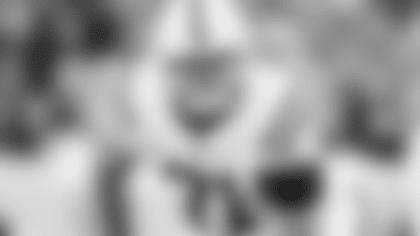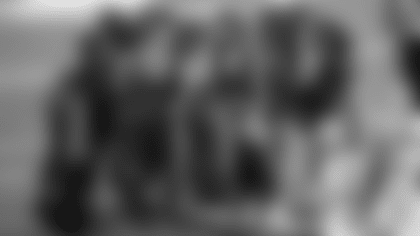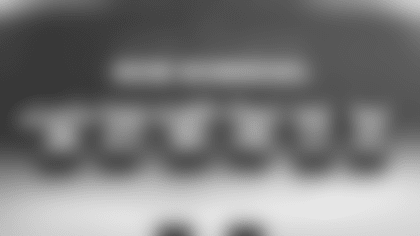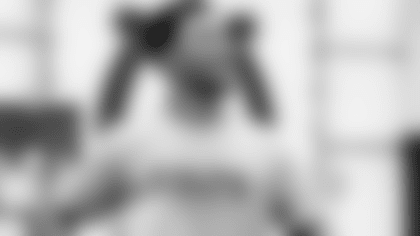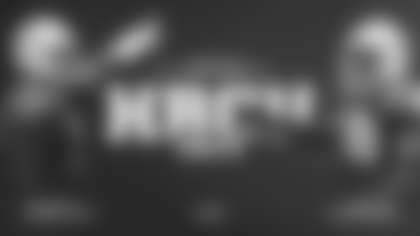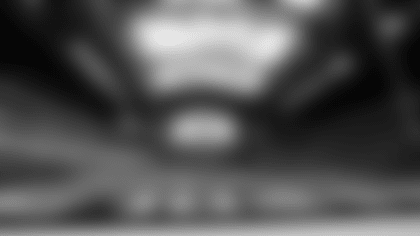[

](http://careyindiana.com)
Question: You're in the NFL now, the latest step in a lifelong dream. But when did it begin? When did you first start playing football?
Answer: "I didn't start playing football until my eighth grade year, as soon as I moved here from Jamaica. I didn't grow up watching football. I kind of played because I saw the other kids played and my dad wanted me to play. It wasn't my dream. When I really started to love football probably wasn't until I got to college, until my sophomore year. Up until that point, it was just a means to an end and a game. Then I really began loving the game and putting everything I had into it. That's when things started turning around for me."
Q: In Jamaica what sports did you play?
A: "I played soccer and cricket. Soccer, people can relate to here. Cricket is not very popular here. Those were my two favorite sports growing up."
*
Q: What do you remember about your first team?*
A: "It was Lake Hazel Middle School Cherokees in Meridian, Idaho. We wore green and gold. What I remember the most was how terrible I was. I wasn't used to all that conditioning in middle school. It was a different world. When you got out there and put your pads on, I had to call my dad. My dad dropped me off at the locker room for my first practice. I left the locker room and ran after him because I didn't know how to put my pads in my pants. That was my first memory – not knowing anything about the game. I didn't even know how to get dressed. I have not been back to that middle school (laughs)."
*Q: Did you have to try a bunch of different positions before you found the right one?
*A: "I pretty much played everything. I started off as an offensive and defensive lineman. I went both ways in high school. My senior year, they let me do a little bit of everything. There was one game where they put me in and we ran the read-option. I went right up the middle. They put me at tight end a little bit. I punted and kicked in high school. I've done just about everything."
Q: How far could you punt, and from what length as a kicker were you accurate?
A: "I could probably punt it 55 or 60 yards. I could kick it pretty well. I think my longest field goal was like 40 yards. I toe poked it, a straight-on kicker. I had a strong leg (laughs)."
*
Q: To get to this level, it has to be about more than money, or fame – the things a lot of people associate with the NFL. What do you love about the game that has kept you playing?*
A: "It's just my competitive nature. Other than wrestling, I can't think of anything that's more competitive, especially playing offensive line. You're battling one-on-one and five-on-five pretty much the entire game. Usually the games are won in the trenches, and it all comes down to that. It comes down to the O-line, D-line. Because I'm a competitive person by nature, it keeps me coming back for more. I'm my own biggest critic. I always want to be better than I was the day before. I think that's what keeps me going. It's wanting to be great."
Q: Is the challenge of the synchronicity of a five-man line more fun for you, or do you like the individual competitive aspect that wrestling has?
A: "They both have their own pros and cons. You could be a world champion wrestler without a team. You can't be a world champion football player without a team. You get the best of both worlds. My competitive nature comes from wrestling. With me growing up with all sisters, a football team is like a brotherhood. No matter what team I'm on, those are my brothers. During the game, I'll go to battle for them every play."
Q: You hear people talk about football players as being a form of family. Do you find it that way?
A: "When we're on the field, I don't think there's anything we wouldn't do for a teammate within the realm of the game. We're out there breathing hard, sweating, bleeding together. That's what OTAs and camp are for. It's to get to gelled and play as a unit because without one position, you're not a complete team. It comes down to everybody being accountable in his own way. You have to be accountable to your position and duty. When everyone is accountable for his job, that's when you achieve greatness. That's when you become a team. An offensive lineman can count on a receiver making a catch. You can count on a quarterback making the right call and putting the team in its best position. You count on the offense and defense. You lean on each other."
Q: When did you first get comfortable with your position?
A: "It was when I got to college. I had played every position except center on the offensive line. I got a feel for how the offense operates and who's supposed to do what on the frontside and backside. I'm pretty comfortable at any position but center since I really haven't played it. If the coaches asked me to do it, I'd do it. Just playing guard and tackle and playing on both sides of the line, you get a really solid feel for the game."
Q: What was your best sport growing up? It wasn't football for all NFL players . . .
A: "I was a much better wrestler than I was a football player. I was always in the heaviest weight class. It's interesting. I wrestled in eighth grade and through high school. It was a terrible eighth grade year, a terrible freshman year. My sophomore year, I couldn't make weight. My junior year, I had a coach, Cliff Laughlin, at Mountain View High School in Meridian, Idaho, who was a big influence. I actually quit the team and told him it wasn't for me. Coach Laughlin told me if I came back and gave it everything I had, by the end of the year I'd be a state champion. I wrestled this kid, Jake Densley from Centennial High School, seven times during the season and lost to him all seven times. I wrestled him in the state finals, and I won. It taught me perseverance, persistence and to strive to be better every day."
Colts Guard - Hugh Thornton
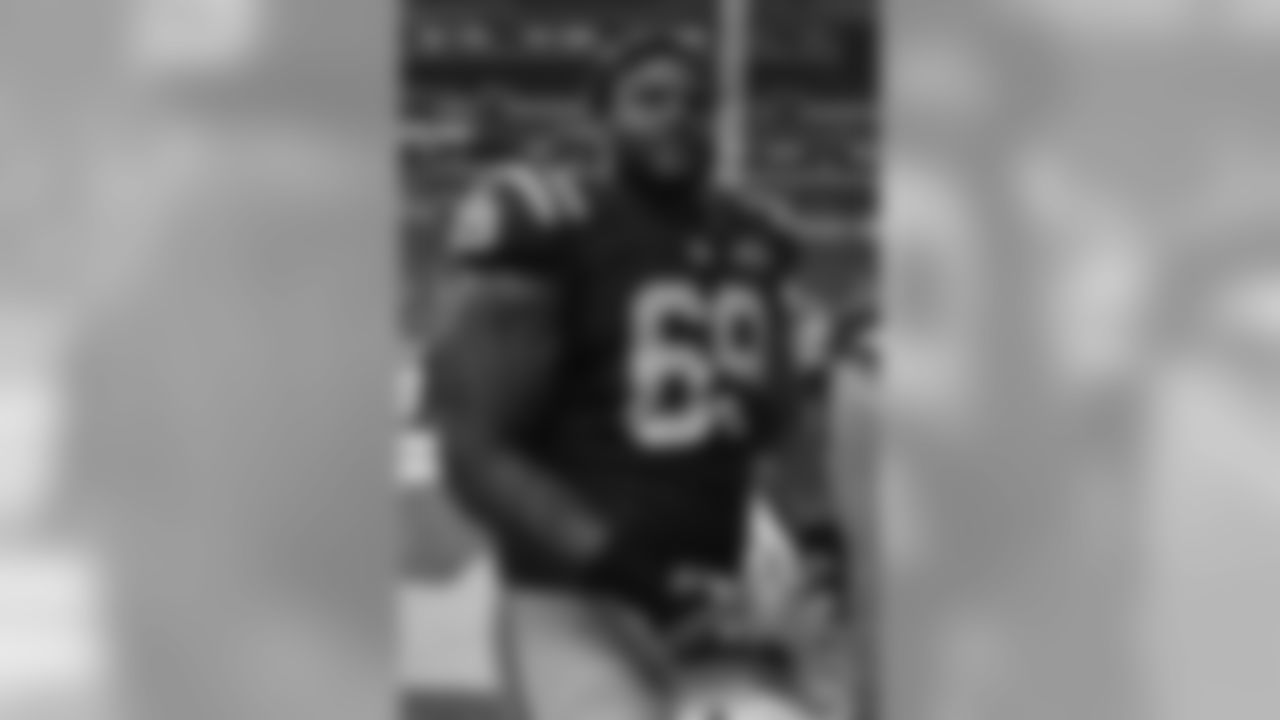
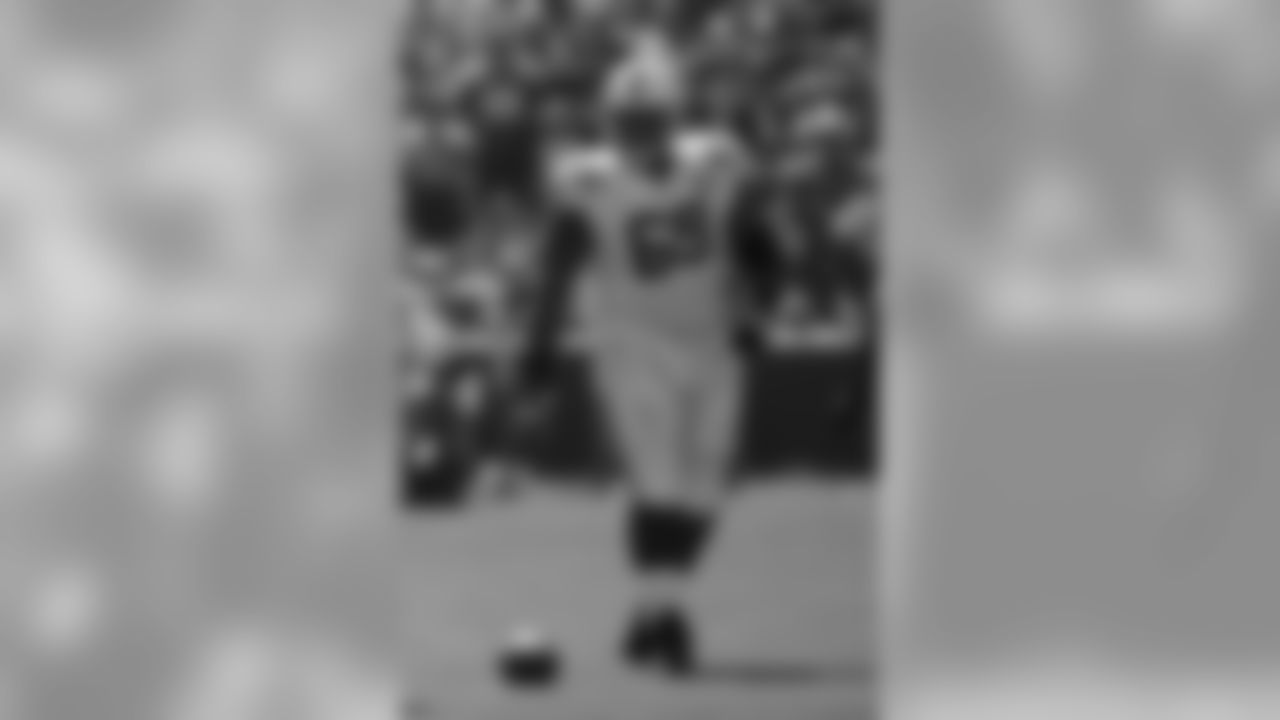
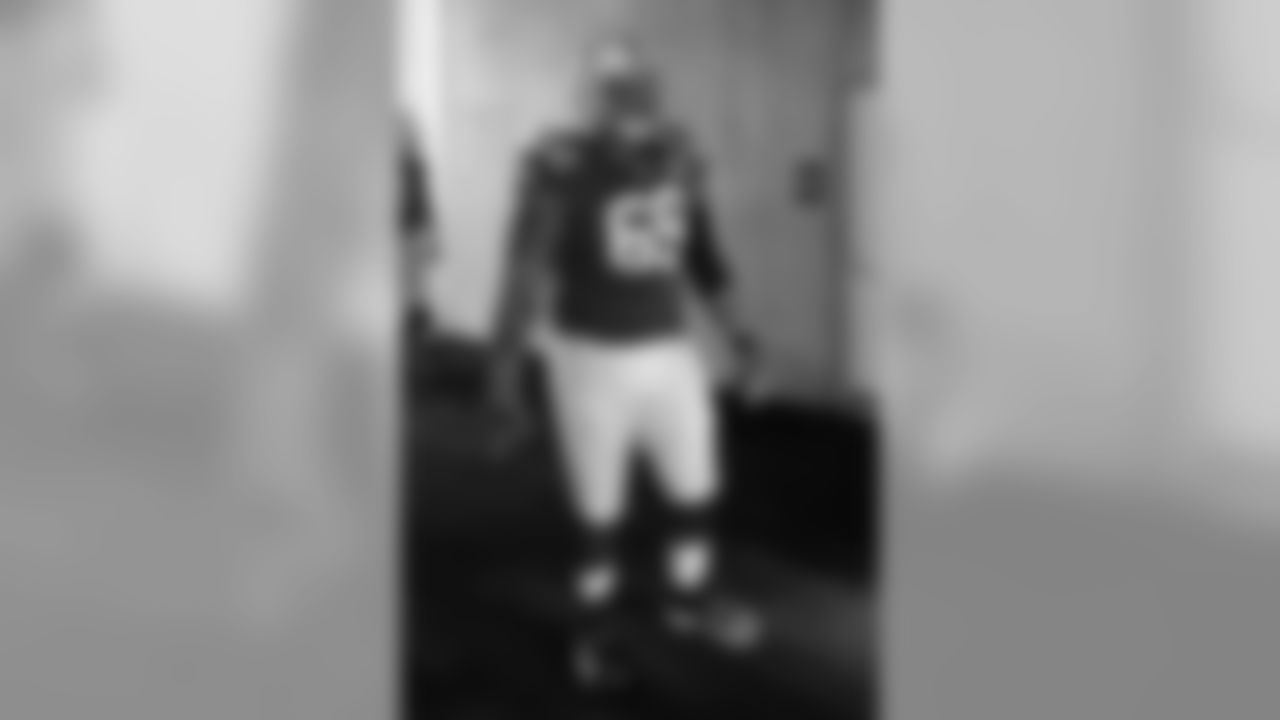
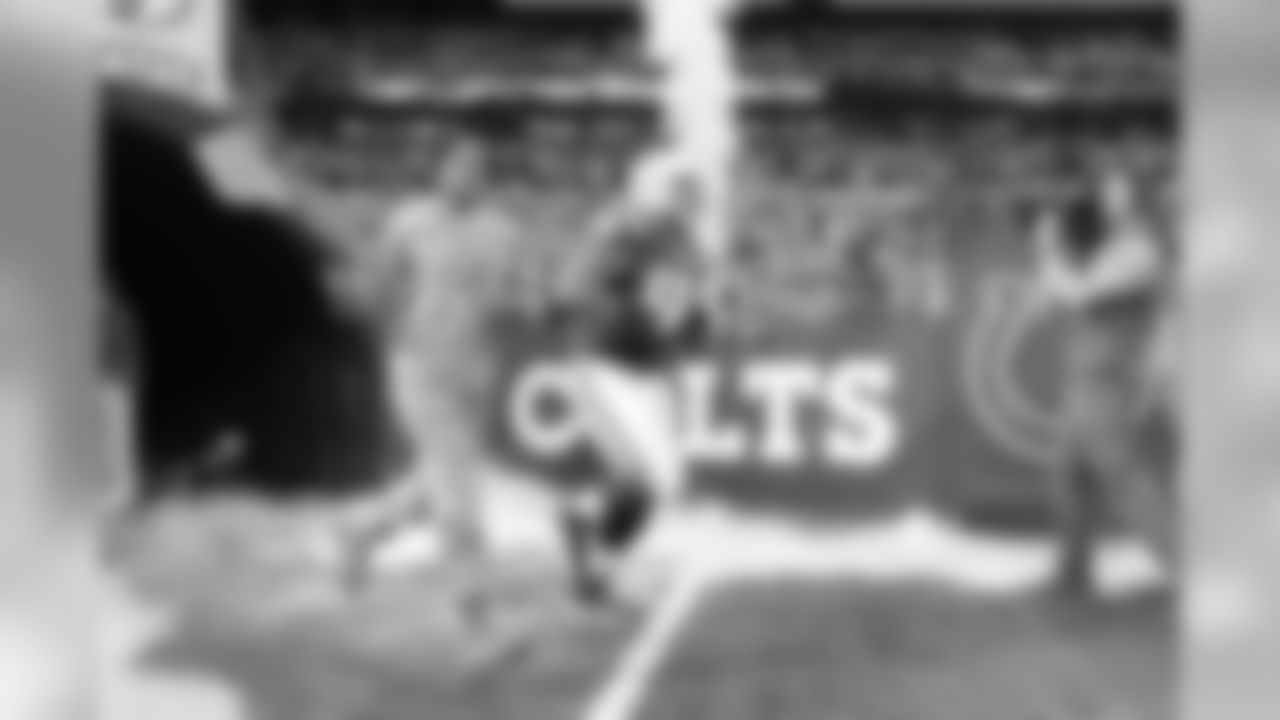
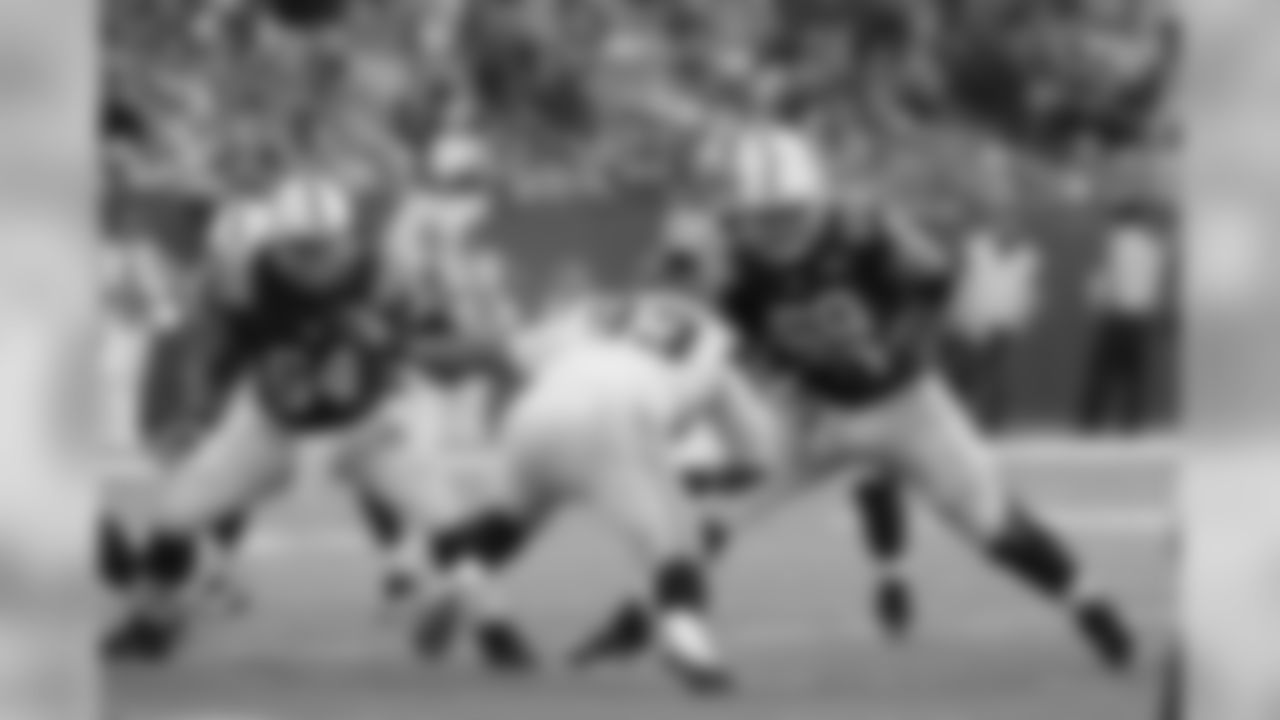
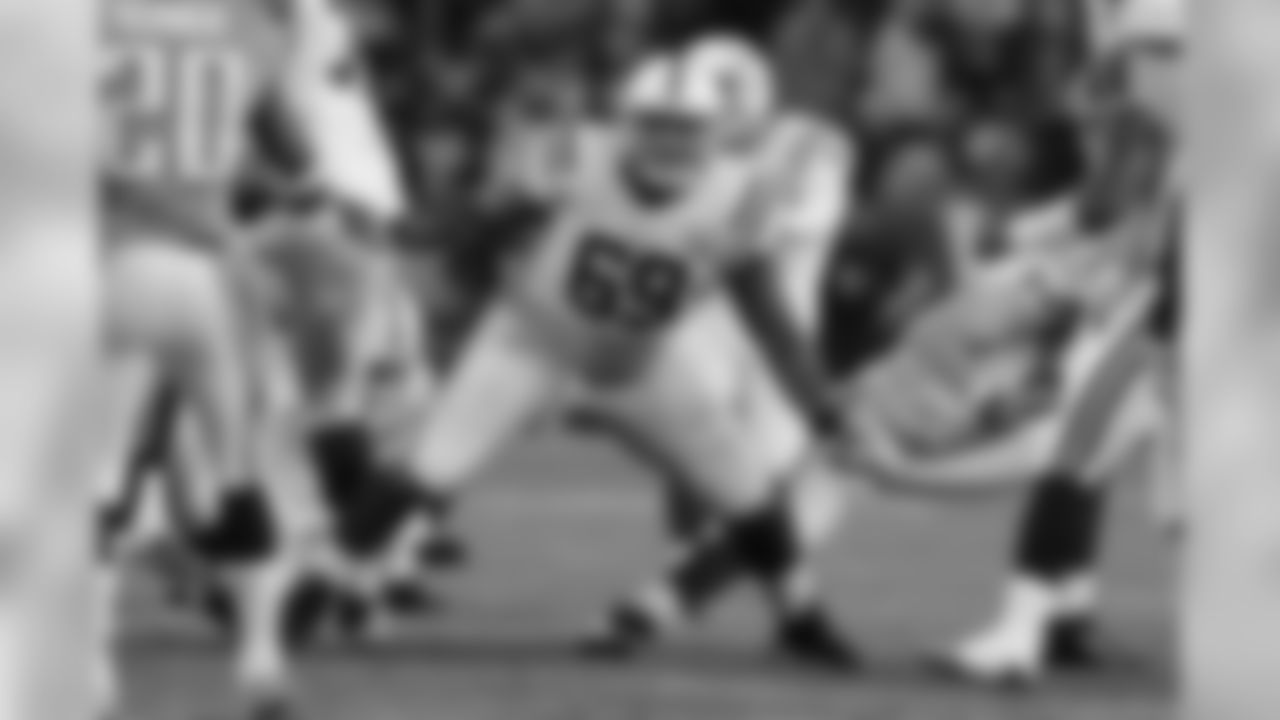


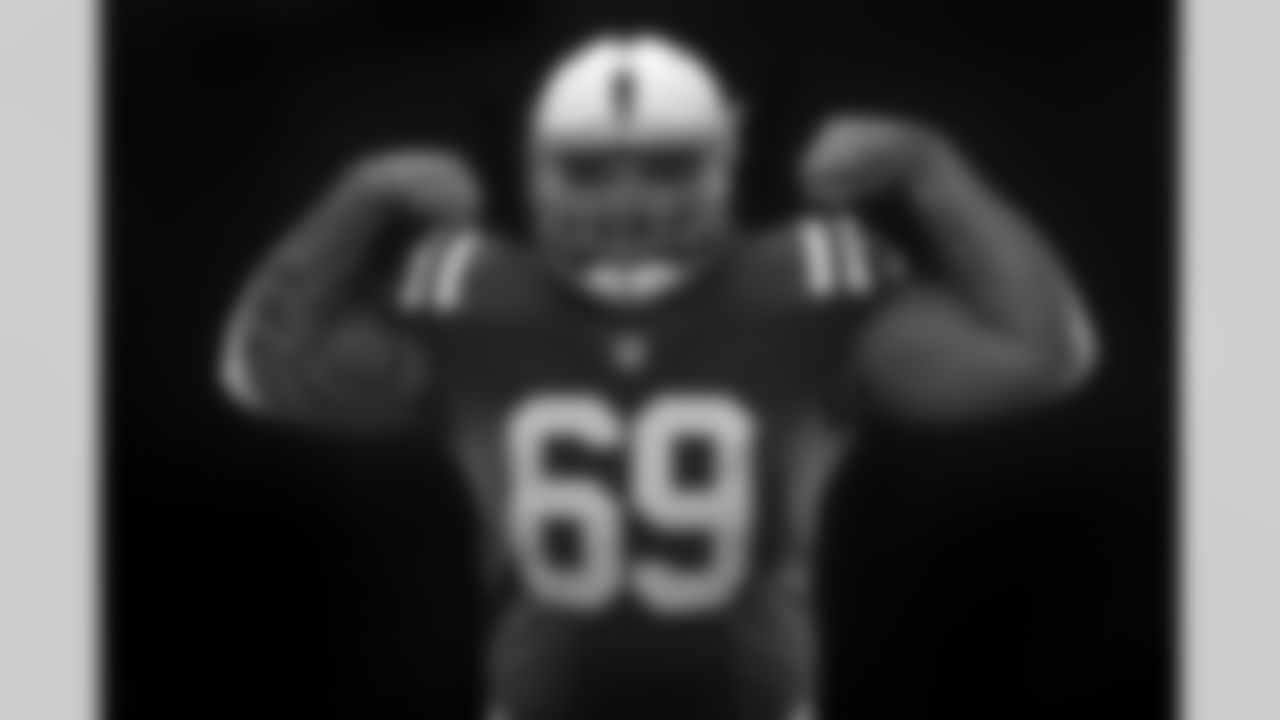
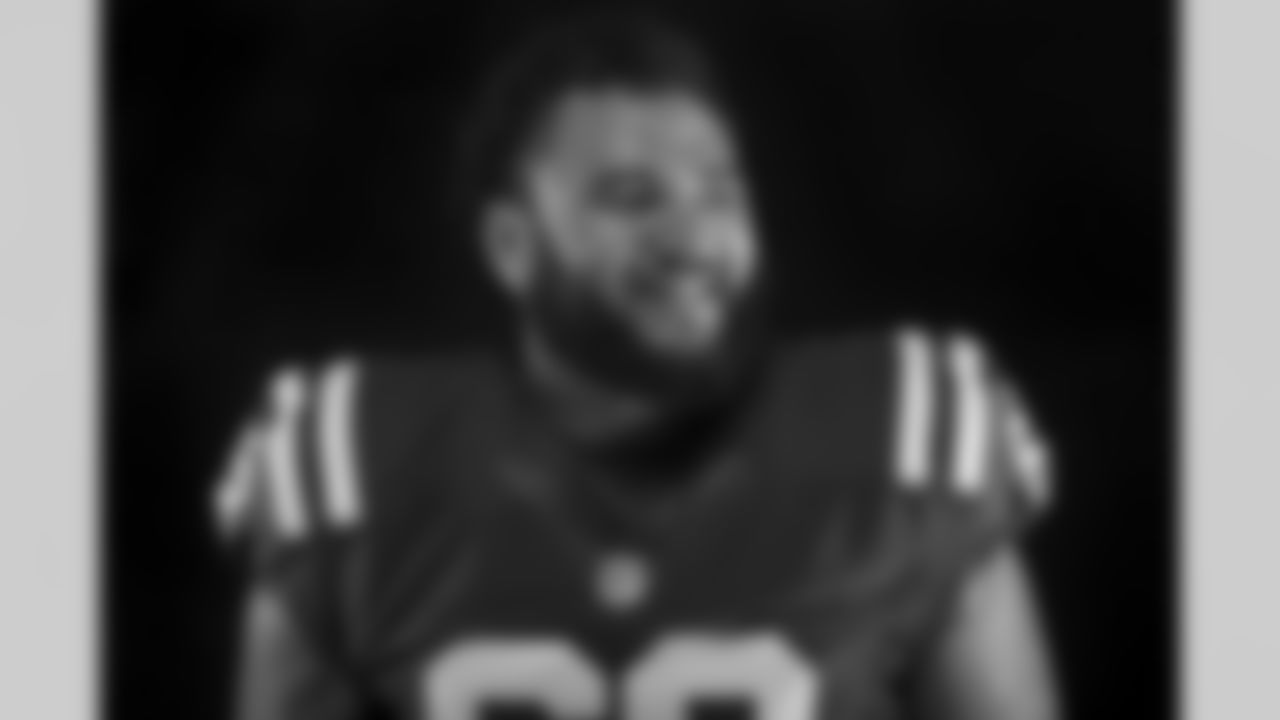
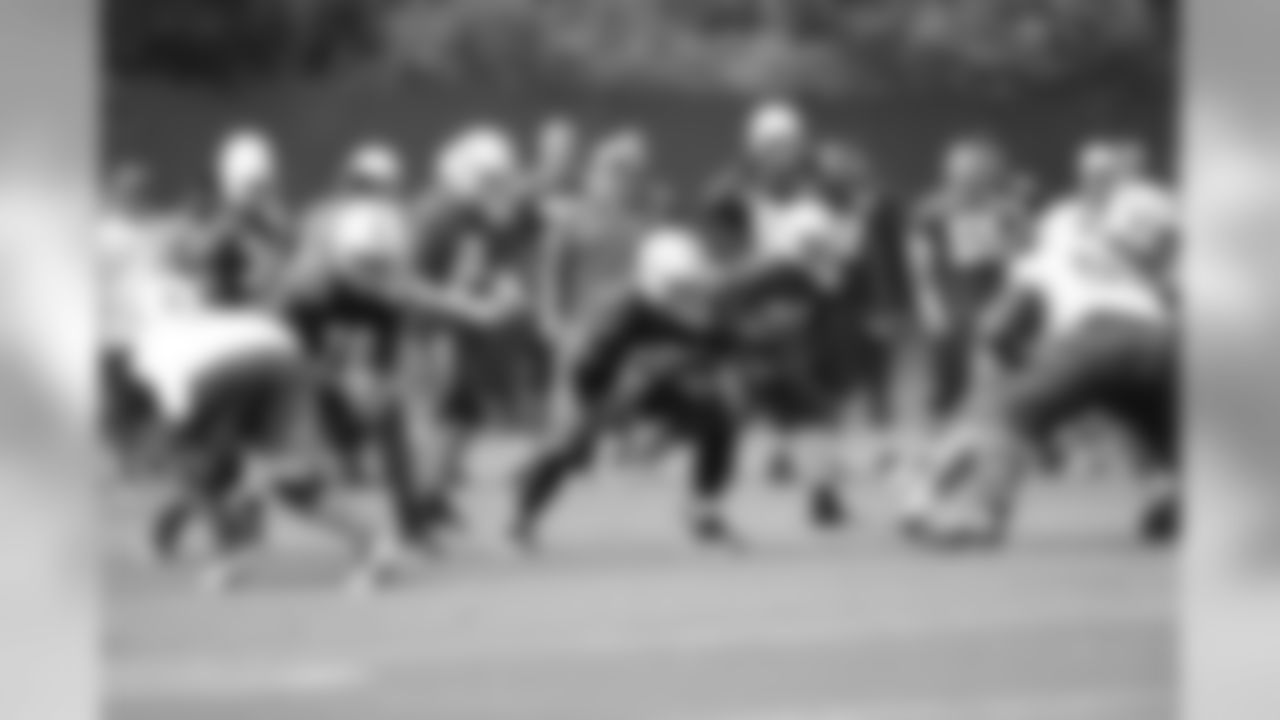
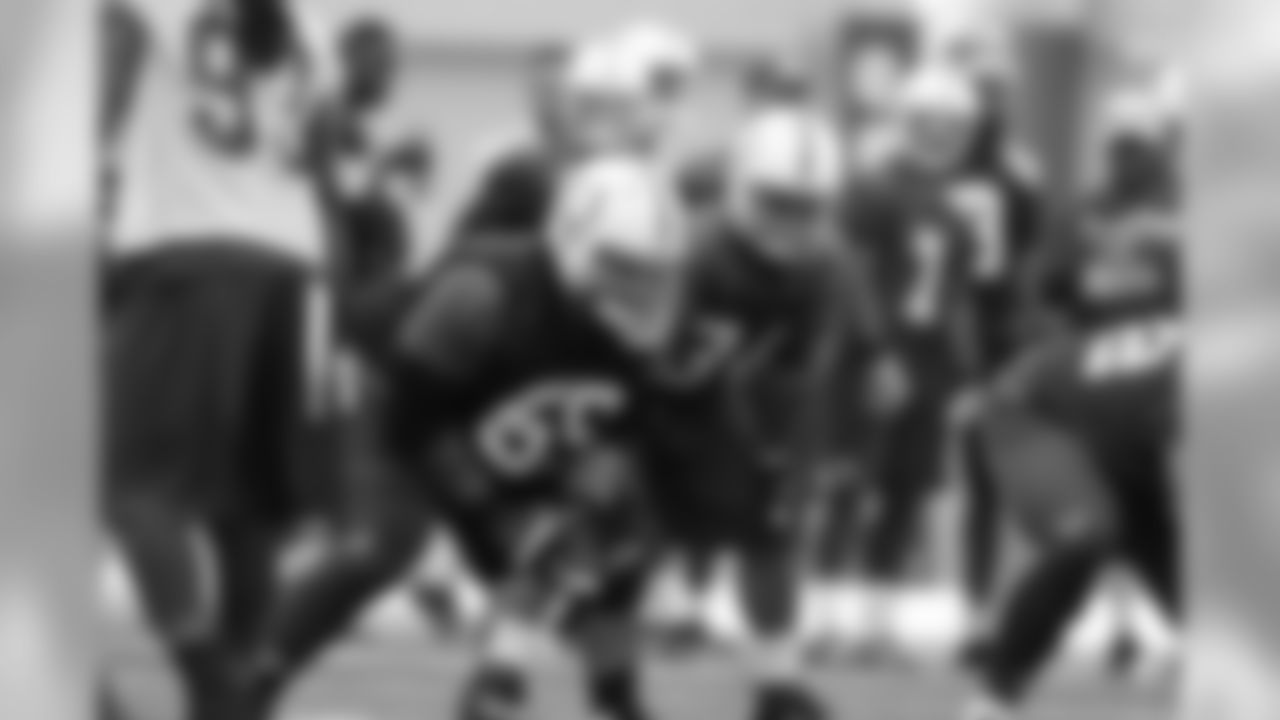
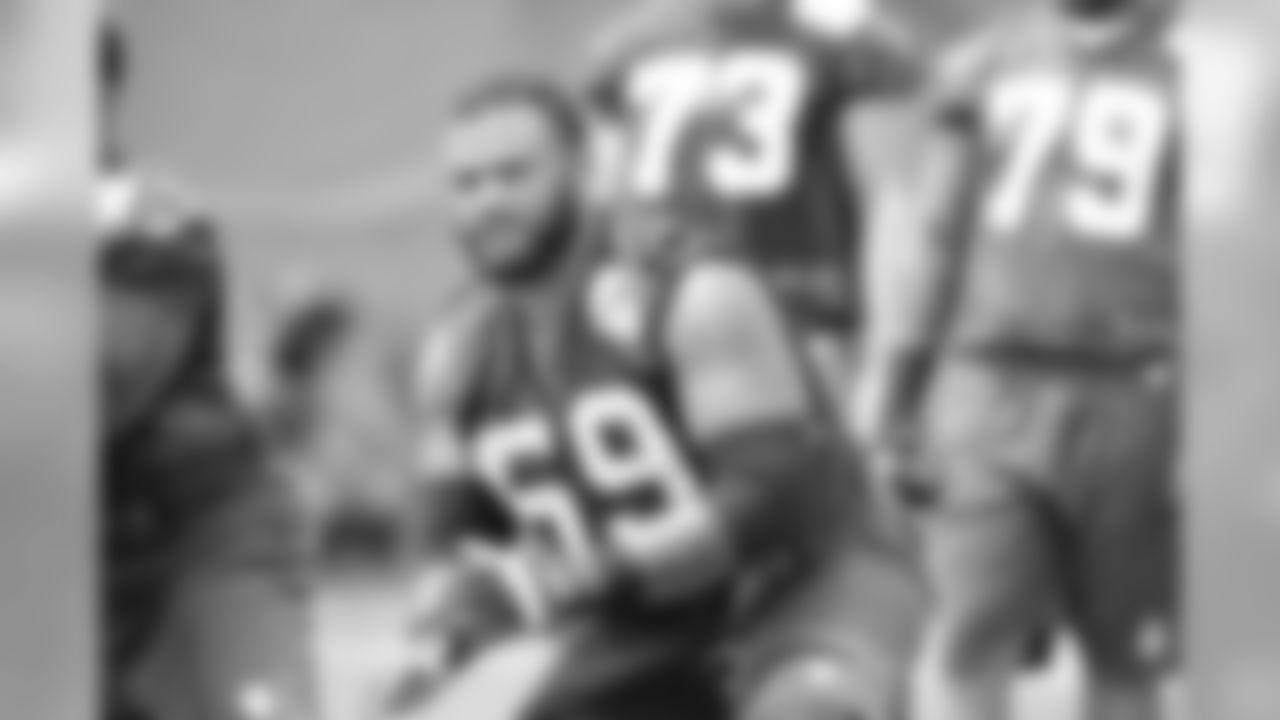
Q: What's your best football memory?
A: "There are a lot. Each year, there is a new favorite memory. We (Illinois) played at Michigan in my sophomore year. The game went into triple overtime, and we ended up losing. Just the constant pressure of going to the first overtime and tying it up, going to the second OT and in the third overtime, the stakes were high, every card was on the table, every chip was in the middle of the table. We lost, but the atmosphere was fun. My junior year we played Arizona State. I think they were ranked 17th. We were unranked. It was a home game in the third week on prime time and under the lights and we beat them, 17-14. We went up into the stands and celebrated with the band. It was the first ranked team Illinois had beaten in a long time. It was electric, the fans were crazy. That was exciting. Last year here, all the times we came back to win was fun. There's something about overcoming adversity and bouncing back from being down by a bunch of points. We did it at Tennessee, at Houston and against Kansas City in the playoffs. That's the whole I concept I spoke about as a team. You're accountable. You trust your brothers on the team and especially on the offensive line. There's no better feeling than that."
Q: When did you first think this was real? When did you first think, 'I have a chance to play in the NFL?'
A: "I never considered myself the best of the best. I always wanted to be, but I guess it really wasn't until preseason against Cleveland in the third game. I sat out in camp with an ankle injury and hadn't really practiced. On the first play, I was playing guard on the field goal unit and just got run over. All I could do was chuckle, 'Okay, there's my first play. I'm in it. This is real.' Then I went out and felt I had a pretty good game. After that, it was like, 'I have to keep getting better every week.' That's when I said, 'These guys are big and strong, but I'm big and strong, too.' You just have to have unwavering confidence. There's always going to be someone bigger and stronger than you, but you can always lean on your techniques and fundamentals as you strive to get better. I didn't have that feeling in college I definitely would get to the next level. That feeling came after I got here."
Q: Do you have a pre-game ritual?
A: "I always get to the stadium about four hours in advance. I stretch, go on the field, warm up, take a shower, stretch again. I put my headphones on when I start to get dressed. I make sure I have something in my stomach for fuel. I look at the game plan one last time. When you put your helmet on, there's no looking back. You go out and perform. That's why you practice. Practice is the hardest part, I think, because it's repetition, repetition, repetition. When you get out there in a game, it's muscle memory. If you run one play 100 times in practice, you go out there and don't even think about it. You just do it and react. I like to get myself calm. Those first three hours I get there, I listen to some reggae music to get my body calmed down. I have the whole game to be on-point and be excited. When it's time to go, it's time to go. I put a couple of different things in there every week, but the reggae is pretty consistent. I listen to a lot of my mom's favorite songs. It reminds me that I do this to kind of make her proud and to make my family proud. Also, it's something I love to do. When I'm getting ready before a game, I feel like I'm close to them. It feels like I'm never alone."
Q: Who's the person most responsible for you being in the NFL?
A: "It would be all my coaches, all my offensive line coaches along the way, and some teachers in high school. As I said, football wasn't my favorite thing to do then; I just happened to be pretty good at it. My coaches stressed the importance of being a leader but to be a leader, you have to learn how to follow. I spent a lot of years following. I still follow. I learn a lot of things from the vets. One day, it will be my time to be a leader. I think because of that preparation and understanding how I had to follow, I'll be able to lead. Definitely I remember my coaches for pushing me to be the competitor I am today. The teachers didn't come from any particular courses. They were just good instructors in general. It started in the classroom, 'If you do this now, take the time to prepare now, later it's going to pay off.' To get here, I couldn't have done it without going through school. I learned persistence and how to apply it to every area of life."
Q: Did you have a favorite player growing up?
A: "No. I didn't. I didn't grow up watching football. I think the first full NFL game I watched was in college. I'd much rather relax and watch a movie in college than be watching an NFL game. I was more interested in the college game than the NFL. My favorite players were my teammates and friends. I saw what they could do, and I always wanted to be one step ahead of them and be better. My best friend, Jeff Allen, plays left guard for the Kansas City Chiefs. We roomed together all through college. If he had a pancake block, I had to have two. It was my teammates who pushed me. That's why they were my favorite players."
Q: You didn't have a favorite team either then, did you?
A: "I didn't. In Idaho, there wasn't a professional team. In the year and a half I spent in Ohio, I still didn't watch football.
Q: What was your first car?
A: "It was a 1990 Ford Explorer with a manual transmission (laughs). I got it in my sophomore year in college, the 2010-11 year. My dad drove it from Boise, Idaho to O'Hare Airport in Chicago. I had to meet him at the airport. He dropped it off at the departure terminal. I met him there. He got out of the car, gave me a hug and said, 'See you later.' I learned how to drive a stick when I was younger, but it had been a long time. I just remember stalling a bunch of times in the terminal trying to get out of it. The people were honking their horns. There were no tints on the windows. They knew who was driving. It was a long trip back to Champaign.
Q: Was that pressure?
A: "That was pressure, but I performed under pressure. It took me a while. I drove around the terminal a couple of times in first gear, then second gear. Then finally I said, 'Okay, it's time, let's get on the highway. Let's do this (laughs).' I stalled a bunch of times. It made me a much better driver, but I heard other people using creative language. There were a few things said my way (laughs), I'm not going to lie."
Q: What was your first job?
A: "The first one I had I didn't treat as a real job. A friend of mine had like Boston Market, where they prepare the meals and you take them home. It was called 'Dinner's Ready,' and I was a meal prepper. I'd have the instructions and put everything in the bag, make sure it was sealed up. I didn't take it seriously, so I'll say my first real one where I had to work was my freshman summer in college. I worked landscaping and stadium maintenance. I mowed the baseball fields and the grass. I washed the ramps and the stadium. That was tough work because you went from that to summer conditioning. It was a long summer, but it was fun. You did lose some body fluid doing that in the heat."
Q: What was your toughest job?
A: "That was my toughest job. Apart from that, this job is tough. A lot of people don't understand the work that goes into it, the preparation and the focus that goes into being a professional athlete, especially being a lineman."
Q: Do you have a favorite quote that has inspired you in football or life? If so, what is it and why does it mean something to you?
A: "It's a quote from my pastor, Myles Munroe. It is, 'The opportunity of a lifetime should be seized in the lifetime of the opportunity.' Just really taking it one day at a time, enjoy life for what it is and when an opportunity presents itself, you need to realize that opportunity may never present itself again. You never know when the opportunity of a lifetime is going to present itself. When you're presented one, take advantage of it and use it to further yourself as a person, a player, as a Christian, or whatever. Never take things for granted. That's really helped me along the way. The average lifespan of an NFL player is around three years. Most people never get this opportunity. If you don't give it everything you have now, later someday you'll regret not giving it all you had. You're here, it's your job and it's your passion. There's no reason you shouldn't give it all the energy, focus and dedication that it deserves. It's, 'The opportunity of a lifetime should be seized in the lifetime of the opportunity.' "
Q: What about after football? Do you have any post-career plans?
A: "While I'm playing, I'm going to finish my degree at Illinois in sociology, with a minor in communications. My coaches were a big part of my growth as a player and a man, so I definitely want to give back to the younger generations. I want to help instill the same work ethic and passion for whatever they want to do – whether it's music, sports, class or working at McDonald's. I want them to be the best that they can be at whatever they do. I want to be a high school coach, not necessarily a head coach. I want to help out with wrestling, kind of instill the things I wish I had known at that age to those kids. There are going to be other generations to come that are going to be better than this generation. That's only going to happen if the older generations help out.
Q: You think those are the most formative and impactful years in other's lives you can help the most?
A: "I think those years – high school, late middle school or junior high – are the biggest years because you change as a person. You go through the biggest changes during adolescence. When you instill work ethic, perseverance and passion to someone at that age, it's something that stays with them for life.





